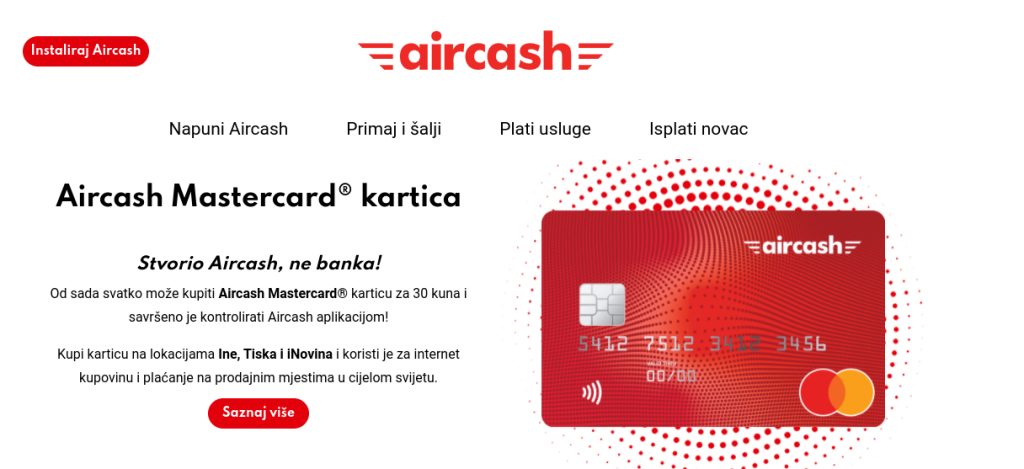As Bernard Ivezic/Novac writes, Aircash, the very first Croatian fintech to launch its own mobile wallet, has now become the first domestic startup to issue its own card. The Croatian mobile wallet Aircash presented its partnership with Mastercard in the City of Zagreb on Thursday, and as a result, Aircash now offers a Mastercard card in addition to its mobile application, similar to the cards offered by the British company Revolut and KEKS Pay from Erste Bank.
Hrvoje Cosic, the founder and director of Aircash, says that this made them the first financial player in all of Croatia to issue Mastercard cards without actually being a bank.
”These are prepaid cards that are exclusively related to Aircash wallets and the balance on them, they have no fees, and we don’t plan to introduce any monthly subscriptions and thus believe that we have a market and price competitive product,” said Cosic, adding that they set a precedent here on the Croatian market in terms of distribution. The cards will not be ordered, as they typically are with other applications, but an empty Mastercard card will be purchased at a kiosk, fuel station or store and is then activated through the Aircash application by scanning the QR code.
”Thanks to that, the card becomes active immediately, it’s then connected to the funds available to the user in their Aircash wallet and it can be used to pay for things anywhere in the world,” explained Cosic, adding that the card can be managed within the Aircash application. This means monitoring and controlling consumption, setting a limit and all this is instantly applied.
Two years ago, this Croatian startup received an EU license for electronic money from the CNB and thus offered its mobile wallet services. It then contracted cooperation with a number of retailers from the Croatian Lottery through HAC to Telecom. Since the beginning of the year, the Croatian mobile wallet Aircash has increased the number of users in Croatia by 70 percent to more than 200,000. In total, it is closer to the number of a quarter of a million users, because it also has many users in Slovenia and Austria.
For more, check out Made in Croatia.








